**Content warning: blood and guts!**
It was close to noon the next day, and Nadya and I were crouched on a roof, watching soldiers pass by in twos and threes on the street below.
“They certainly got the message,” I whispered in Nadya’s ear, and she swatted me away.
One of the soldiers turned back to shout something to the men behind him, and we both ducked down.
“We could just start picking them off now,” I said. “We could clear the street.”
“No one would see it. The point is for people to see it.”
“I thought the point was to get the soldiers out of Pultavo.”
“It’s both.”
“What if no one shows up?”
“Are you kidding me? At the very least, this will be interesting.”
“What if they flush everyone out of the square before we get there?”
“They’ll want to identify everyone who shows up—in case any of them is you or Pasha. They’ll corral them.”
“What if then they don’t get in front of the crowd? We can’t just be shooting into a crowd of townspeople, hoping to hit soldiers.”
“Look, that’s the end of the column. Come on.”
We made ourselves quiet and crept down to the side of the building facing a narrower street, leapt from pitched, rain-slick rooftop to rooftop. It was the first time I’d seen Nadya put her Tajna to practical use. She moved like a hunting dog locked onto a scent. Her timing, when she flexed her calves and pushed off the roofs, pushing all her strength into that point of a foot, spring of a leg, was fluid, self-assured. I felt proud watching her, and pride was close enough to confidence.
The soldiers were flowing in from all sides of the square. They filled out the perimeter like a line of ants, stopping people as they went, yanking off hoods and dumping bags onto the ground.
The civilian crowd in the square was thicker than it might have been otherwise but did not seem organized. They were not yet angry. They were curious, peering about, milling around. This was not so much a group of rioters as an audience.
We met Pasha on a roof at the north end of the square. The hollowness from last night was all but gone from his face. That morning, he’d woken me from fitful sleep with a gentle rub on the shoulder. The burning light had already been in his eyes, and it remained there still.
This was the day he had been waiting for.
I would do anything to avoid disappointing him.
His intensity was infectious. The zhiva in me roiled and the rain-drenched city looked brighter, like it was ready to burst into flames.
Pasha put his hand on my shoulder and kissed Nadya on the forehead. Then he rose to his full, impressive height and strode straight down the middle of the pitched roof to the edge.
His arms rose up from his sides as he greeted the crowd, and the shrouded sun broke through the clouds to shine down on him, a spotlight for his star turn.
I didn’t register his words. I was buzzing too hard, waiting for the right moment and watching his back as his shoulders rose and fell, the weak light of the sun halo-ing him. Today, the words weren’t important. Today was a demonstration.
The soldiers had just started to make their way to the roof when Pasha jumped. The whole city of Pultavo gasped as one.
I looked to Nadya—to reassure her, to encourage her—but she had already taken aim at the first soldier. He flew back off the building, so quick he didn’t have time to scream. Nadya and I shot the rest as their heads poked over the eaves, like flicking flies off a windowsill.
I didn’t hear their bodies hit the ground, but I heard Pasha say, in his orator’s voice, “You will see today. You will see what you can do—” His voice cut off, and my heart stopped. I flew to the roof’s edge, nearly skidding off into thin air.
It was just like he said it would be. The soldiers surging to the front of the crowd. Hundreds of witnesses penned in.
Pasha was on the steps of the building, surrounded by soldiers. One’s sword was freshly swung, the blade just behind Pasha’s shoulder and rising to swing again. Pasha’s smirk was wild; he threw one punch and the soldier’s head snapped back, his body toppling like a bowling pin.
I let a wide swath of energy loose at the feet of a pair of soldiers ascending the steps, and the wood splintered beneath them, swallowing them whole. Nadya got one on Pasha’s other side straight in the head, and the blood spattered on the soldier standing behind him.
It wasn’t fair. With Dmitrij having diverted the only true volshebniks left in the city, these miryanin soldiers didn’t stand a chance.
The crowd—and it was a proper crowd now; I didn’t know when it had swelled—was feral, screaming in terror and fury and delight and ravenousness, surging forward and back like waves on the shore.
“Watch my back,” I yelled to Nadya, and I didn’t need to look to know she would.
There was not yet a great enough concentration of soldiers at the front to pull off my most magnificent trick, the spectacle all these people had come here for. But they were coming.
In the meantime, I sniped the soldiers who rushed up the building’s stairs, one and two at a time, until they became wary to move up at all. They would start coming through the building itself soon, but Pasha and Dmitrij were right, they had not thought to organize archers. Dmitrij had arranged for Captain Akhmatov to be gone on some “wild goose chase,” as he was fond of saying, and without him, they were a leaderless mess.
The soldiers’ reluctance to come up the stairs had created a traffic jam at the foot of the steps. They were six rows thick there. A good cushion before the crowd began. They thought they were outside of my range.
“Yusha, do it now!” Nadya called.
Pasha craned his neck up, fixing a strange, encouraging smile on me. He looked, suddenly, peaceful. Time for the showstopper.
I stretched out my hand and let it go.
Where before there had stood thirty-odd miryanin soldiers, now there was only a smear and a crater. A man in yellow on the edge of it staggered, open-mouthed and clutching the stump of an arm. On the back edge, a few soldiers still stood, painted red, faces blank or just beginning to twist in horror.
Thirty lives, gone in the time it took me to snap my fingers. The big finale.
A scream rose from the front of the crowd and smoothed into a roar as it traveled back, the sharp edges of panic dulled by distance.
“Yusha!” Nadya yelled, and I staggered back. It took me a moment to realize my arm had been hit by an arrow. Ah, so there were the archers.
Before I could react, she was already shooting at them. They were far enough away not all of her shots landed.
I retreated behind the peak of the roof. An arrow whizzed by my ear as I dove, skidding down, tiles flying in my wake. I wrapped my hand around the arrow’s shaft, but before I could pull it out—I still couldn’t feel anything, wasn’t that curious?—I thought of Pasha alone on the steps, a sitting duck for those archers. I scrambled back up the pitch of the roof, but when I stuck my head up over the apex, the archers were gone.
I looked over at Nadya, who had joined me on the protected side of the roof.
“They’re here!” she cried happily. “Your students are here!” I’d never seen a smile so wide.
Down below, the soldiers were moving again. This time, the majority were for the exits. But the more time elapsed without another mass casualty shot, the more they hesitated, turning back. Perhaps that was all I had. I rose to my feet. The crowd’s eyes were on me, too: anticipating. Doubting.
I picked a cluster of pink and yellow uniforms and turned them red.
Now, the soldiers ran. Full, disorganized retreat, chased by some brave townspeople shaken out of their shocked stupor. It was primarily the ones further back in the crowd who gave chase, the ones who had avoided being splashed with the still-warm remnants of recently alive human beings.
Nadya said, “They’re running. They’re running from us!” Her voice was breathless, half-giddy.
“Let’s go down,” I said. “They have to leave the city.”
“Wait, wait.” She grabbed my arm and broke the arrow off near the head.
I gasped.
We jumped.
***
The square emptied so quickly.
We had transitioned from a battle to a hunt.
As I ran, I recognized some of my volshebniks—no, not volshebniks. Miryanins who knew Tajna. Miryanins I taught Tajna. Pasha said they would be here. Later, I would need to find out who took care of those archers for us. I owed them a “thank you” at the very least—and at most, that person out to start teaching. Knowing my students (and my own limitations as a teacher), most of them couldn’t hold enough or control their myortva well enough to sustain a fight.
I just hoped the soldiers wouldn’t figure that out.
They were running now, but if we let them, they would regroup and come back organized. Come back with a plan. So we chased, and we kept the townspeople chasing. Citizens appeared with crowbars and butcher’s knives and mallets and various tools of trades I had never even thought about applying to violence. I saw a woman whacking a soldier about the head with a carpet beater and a man wielding a shovel like a sword. I saw people kicking a long-dead body draped in pink. People standing in the street, tendons standing out on their necks, screaming blindly at the sky.
It became, quickly, not our fight but theirs.

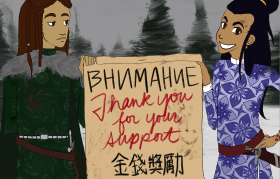
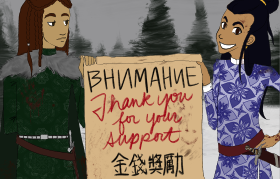
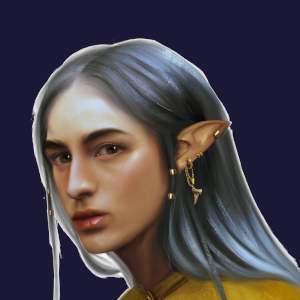
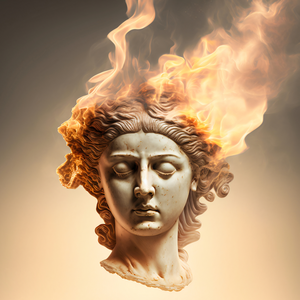







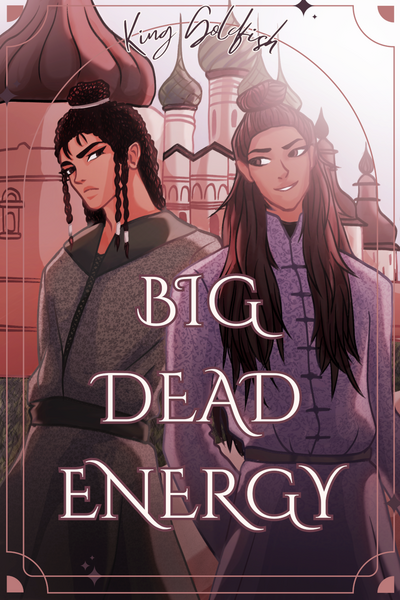
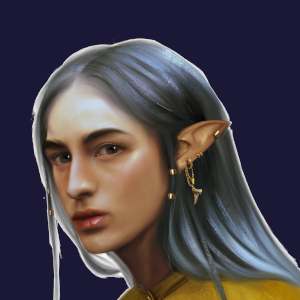
Comments (1)
See all